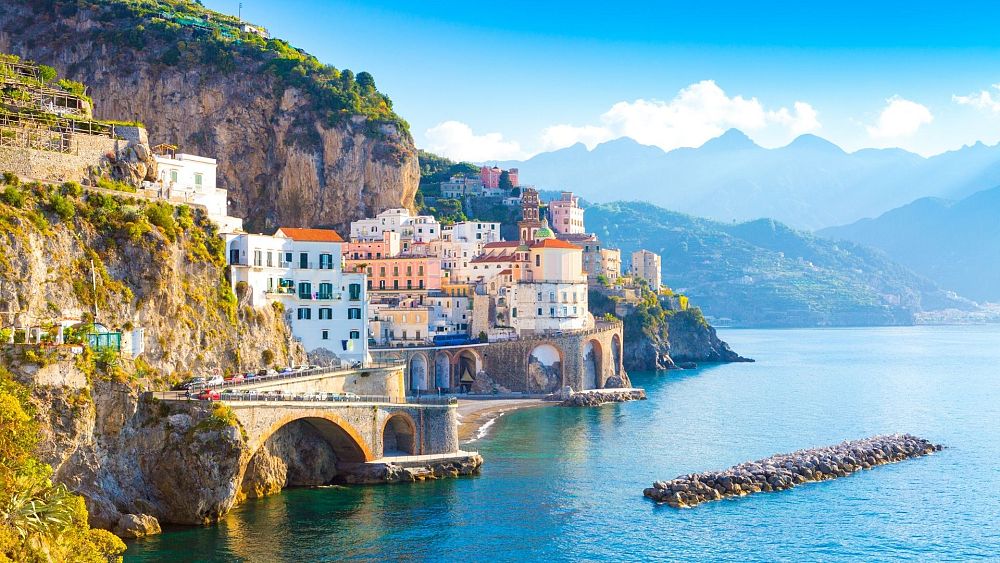Italy travel restrictions: everything you need to know about testing and the Super Green Pass
Italy has simplified its travel rules for anyone arriving in the country from the EU and the Schengen zone.
From February 1, these arrivals will only need to present either proof of vaccination, recovery, or a negative COVID-19 test. The test can either be a negative lateral flow test performed within 24 hours of arrival or a PCR test performed within 48 hours. Tests must be from a certified provider and home test kits are not permitted.
This is a simplification of previous rules, which required travelers from the EU and Schengen area to show proof of vaccination or recovery and a negative test result. There was a five-day quarantine period for anyone unable to provide both, but that has also been removed.
Italy will revise its rules again on March 15.
What if I’m traveling from the UK?
Passengers from the UK must still show their vaccination certificate and provide a negative COVID-19 test to enter Italy. The test can be either a PCR test performed within 48 hours or a lateral flow test performed up to 24 hours before arrival.
Only tests from a certified supplier will be accepted.
UK is currently on Italy “List D”, which means it is classified as medium risk. Other countries on this list include the United States, Australia, and Canada
The NHS COVID-19 Travel Pass can be used as a Green Pass in Italy, as long as the QR code is readable. However, if you have not had your booster, your second dose must have been received less than six months ago, i.e. 180 days. Alternatively, you can show a certificate of recovery from COVID-19 issued within the last six months, along with proof of two doses.
The prolonged state of emergency in Italy
After peaking in mid-January at nearly 200,000 new cases per day, Italy’s case count is starting to drop, with a daily total of 133,306 as of February 1.
In December, Italian ministers voted to extend the state of emergency until March 31, 2022.
This means that the national government and regional authorities will retain their power to impose new laws at short notice if the health situation requires stricter measures.
The ‘Super Green Pass’ explained
Italian residents and visitors must have a “Super Green Pass” to access most of the covered places.
This new type of green pass was launched on January 10 and shows proof of vaccination (currently estimated at two doses) or recovery from the virus within the last six months.
Already required in cinemas, theaters and stadiums, the Super Green Pass cannot be obtained with a negative Covid test result, meaning it excludes unvaccinated people.
You also need it to be able to dine in restaurants, indoors and outdoors, as well as to be allowed in hotels, ski lifts, museums, archaeological sites, gyms and swimming pools, as well as a range of other activities from wedding receptions and bingo halls to festivals and theme parks.
It is also required on all forms of public transport – local, regional and national – including planes, trains, boats, buses, trams and subways.
How to get a Super Green Pass?
For those in the EU, you can use your EU Digital Covid certificate issued by your home country instead of a Super Green Pass.
For Brits, Italy will accept British proof of recovery or vaccination against COVID-19 as equivalent to a Super Green Pass – as long as it is in the form of a QR code.
As a Briton, your NHS vaccination center appointment card is not designed to be used as proof of vaccination and should not be used to demonstrate your vaccination status. Instead, you need to download the NHS app and get a QR code through that.
What’s the easiest way to find out the travel rules for Italy?
Italian rules may change at short notice.
For the latest and most reliable information, complete this quiz of the Italian Ministry of Foreign Affairs. It is in English and will tell you the travel conditions depending on your individual situation.
You can also consult information from the Italian Ministry of Health travel information page (in English).
Or you can call Italian coronavirus information line.
From Italy: 1500 (toll free)
From abroad: +39 0232008345 or +39 0283905385


Comments are closed.